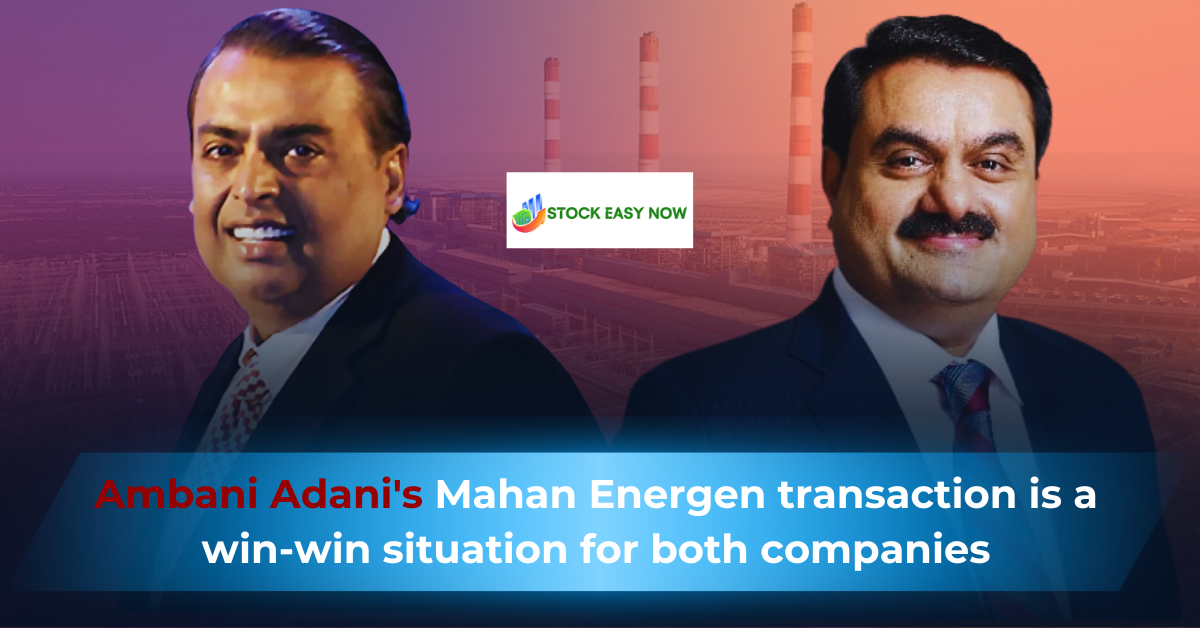Ambani Adani’s Mahan Energen: Last week, two of India’s biggest conglomerates, Reliance Industries and the Adani Group’s power business, forged an agreement. This deal entails Reliance Industries (RIL) acquiring a 26 percent stake in Mahan Energen Limited (MEL), a subsidiary of Adani Power based in Madhya Pradesh. While the investment amount of Rs 50 crore may seem relatively modest, its strategic implications carry significant weight.
This agreement grants RIL access to 500 megawatts of power, intending to utilize it for captive purposes. As per Mahan’s website, the current capacity stands at 1200 MW spread across two plants of 600 MW each, alongside plans to expand by an additional 1,600 MW, comprising two plants of 800 MW each.
In a statement, RIL stated that the planned investment “adheres to the regulations outlined in the Electricity Rules of 2005.” These regulations mandate the company, as a captive user, to hold a 26% proportionate ownership in one unit of MEL with a capacity of 600 MW, given that RIL will be utilizing 500 MW of the generation capacity.
This entails a long-term purchase agreement spanning 20 years. To contextualize, a captive power plant, typically positioned near a sizable manufacturing facility to supply power exclusively to that operation, is established to ensure consistent and reliable power supply.
In this instance, RIL is procuring power from a captive plant, MEL, and as a consumer, is required to hold a 26% ownership stake in it. It’s worth noting that both conglomerates are active in sectors like renewable energy.
There are numerous benefits for both RIL and Adani in this arrangement. If RIL were to construct a 500 MW plant at a rate of Rs 4 per MW, it would require an expenditure of at least Rs 2,000 crore, not to mention the time involved.
Deven Choksey, Managing Director of DRChoksey FinServ, suggests that RIL gains access to more affordable power, while Adani benefits from incoming capital. Regarding pricing, Choksey believes that RIL would have previously paid over Rs 10 per unit, but now it could potentially be as low as Rs 3.5-4.
The plant in Madhya Pradesh was acquired by Adani Group in mid-2021 from Essar Power after it had entered insolvency. It was one among several power assets that the Adani Group acquired, spanning both thermal and renewable energy sectors. – Ambani Adani’s Mahan Energen
Also Read: Stock Market Updates
Due to its strategic location, the Adani Group can conveniently utilize the plant to fulfill its power needs across various businesses in central and eastern India. “For the Adani Group, equity has been restored, and servicing the debt is manageable. From Reliance’s standpoint, the power can be transmitted to distant locations such as Jamnagar.”





